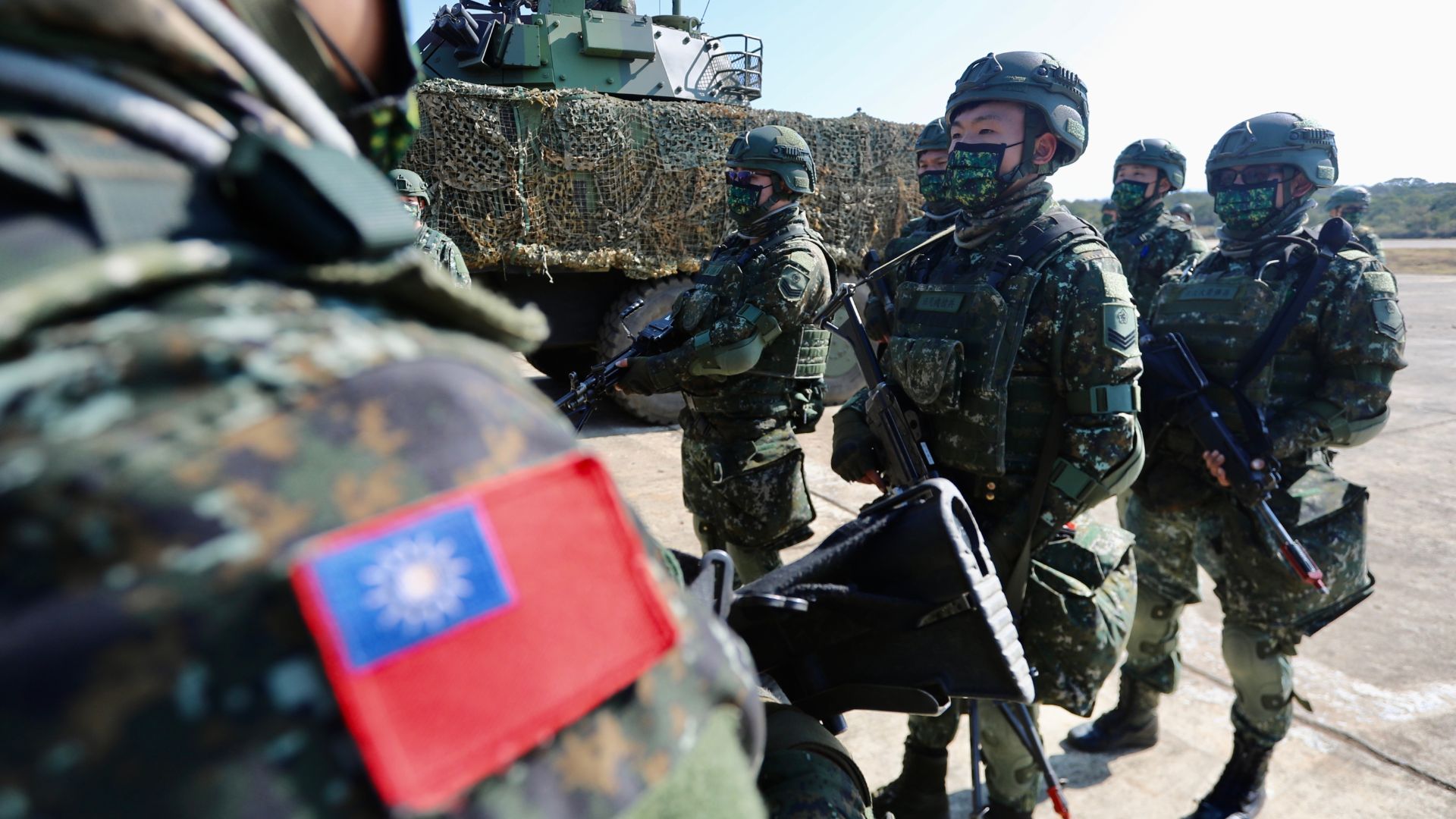Taiwan
Thinking about Taiwan

What an island! Okay, it was only two days that a delegation of our Friedrich Naumann Foundation for Freedom visited Taipei to open our Global Innovation Hub in this eastern Asian city with a population of 2,4 million. But my second visit to Taipei left deep traces, even more so than my first visit in 2017. The reason is thousends of miles away from Taiwan. It‘s name is Ukraine.
But let’s start with Taiwan’s outstanding qualities. Why did we chose this remote island as our global innovation hub? The answer is simple: We wanted to land in a sprawling centre of communication and research on global technological advance. Taiwan is exactly that. And more: other than many high-income places in the world, Taiwan has proved to be a beacon of a wide range of very different socially valuable innovations: a world leader in the production of high-end microchips that are indispensible for modern computers and digitalization; a leader in the production of fancy high-quality mountain bikes that are sold in more than 40 countries of the world; and, not to forget, a leader in modern health care and the prevention of the spread of pandemics as its remarkably successful fight against Covid at the doorsteps of the virus‘ origin China has amply shown.
Beyond that, Taiwan is a lively and successful democracy, almost a textbook case of liberalism. In standard freedom-rankings, she usually scores as well as Germany and slightly better than France. It has a free press as well as a freely discussing parliament, and the rule of law prevails - all in stark contrast to its own past up to the 1980s and to neighbouring China, which has turned into an autocratic, if not totalitarian regime under Xi Jinping. In Taiwan, power has peacefully changed hands from the traditionally dominating Kuomintang Party (KMT) to the liberal Democratic People‘s Party (DPP), and - some day - the pendulum may swing back, even if we Liberals may not like that.
It is exactly this democratic quality, however, which puts the country under severe pressure. The aggressive war of Putin’s Russia against Ukraine has shown that an autocratic country with imperialist tastes may stand ready to attack a freedom-loving neighbour, in particular if the history of the neighbour‘s history is closely related and intertwined as is obviously the case with China and Taiwan. Beyond that, China has always rhetorically expressed a preference for a peaceful unification, but has never explicitly excluded a reconquest by war. To the contrary, in recent years, Xi Jinping has stepped up his rhetoric vis-à-vis Taiwan so that the possible prospect of an attempt at occupation is not at all far-fetched.
And here comes in Ukraine. After the Russian conquest of Ukrainean Crimea in 2014, the country went over to what may be called a „hidden“ modernization of its army, hardly noticed by observers outside specialized military circles. The aim was to turn the country into a „hedgehog“ or better „porcupine“, i. a. a well-equipped undigestable geographical entity, spiked with mobile defensive weapons that can stop off the enemy without themselves becoming easy targets. Apparently, this „asymmetric„ strategy worked - together with western support, which followed precisely because Ukraine put up such an intellegent and successful defensive resilience.
That is exactly the strategy that Taiwan needs. Compared to Ukraine, such a strategy would at the same time be less and more difficult for an island like Taiwan: less difficult, because a Chinese occupation would be harder to manage as the Straits of Taiwan would call for a landing operation and not just a land-bound advance; more difficult because, conversely, the support from abroad - notably the United States - would have to cross the ocean and thus become vulnerable to blocades and the like.
Be that as it may, Taiwan has no real alternative to this asymmetric „porcupine“-strategy if it wants to effectively deter a Chinese attack. It has to prepare for that. Alas, it hasn‘t done so yet, as the London THE ECONOMIST convincingly argued in a recent Special Report. In our talks in Taipei, we found the conclusions of THE ECONOMIST fully vindicated. There are basically three reasons for this unfortunate fact:
Firstly, Taiwan has not shifted enough finanancial and human resources into defense. 1,7 percent of GDP go into public defense spending, not to speak of France and the United Kingdom or the US or Israel. While Taiwan has extended conscription from four to twelve months in view of the increasing threat - a good first step - the quality of training must now also be improved.
Secondly, Taiwan has so far ordered and installed the wrong type of modern military equipment. Broadly speaking, it amounts to expensive offensive weapon types, which are practically useless in a defensive „porcupine“ strategy. This has historical reasons: Taiwanese military thinking is still stuck in a world of old-style Kuomingtang ideas of the times when mainland China was economically and militarily so weak that a reconquest of the Chinese land masses lost by Chiang Kai-shek in the late 1940s was not altogether absurd. Typically, military leaders still stick to the old doctrine and strongly resist a radical turn to an asymmetric strategy.
Thirdly, the spirit of the army is generally top-down and not sufficiently bottom-up. That is particularly bad for defensive operations with highly mobile local units, which require a great deal of decentralization of decision-making. In the judgement of specialist observers, it is exactly the high degree of flexibility and autonomy of lower-ranking units that explains why the Ukrainians have been so remarkably successful in rebutting the first waves of Russian assaults - to the surprise of many foreign observers. By this token, they gained enough time to obtain high-tech weapon supplies from the West. A similar strategy of sustained resilience could help Taiwan against China until American and Japanese (plus other „western“) support arrives over the Pacific.
Clearly, Taiwan needs tough political decisions to remove these three major deficiencies. This may take years, but if it is credibly done it may be even more successful than the brave fight of Ukraine against Russia. After all, it may set up a credible deterrence, thus avoiding a war in the first place. The key to this lies in an early and stark strategic communication. It must be made clear to China that Taiwan is in fact reshaping itself into a „porcupine“ that cannot be swallowed and digested without prohibitive costs to the aggressor. If that is clearly signalled early on - and credibly supported by western friends, most of all the US, then Xi Jinping may well refrain from committing a catastrophic error of the Putin-style, i. e. massively underestimating the enemy. After all, Putin was not deterred from attacking because, obviously, he did not recognize the „porcupine“ as what it was - and nobody told him about it. In this respect, Taiwan can and must do even better than Ukraine.
